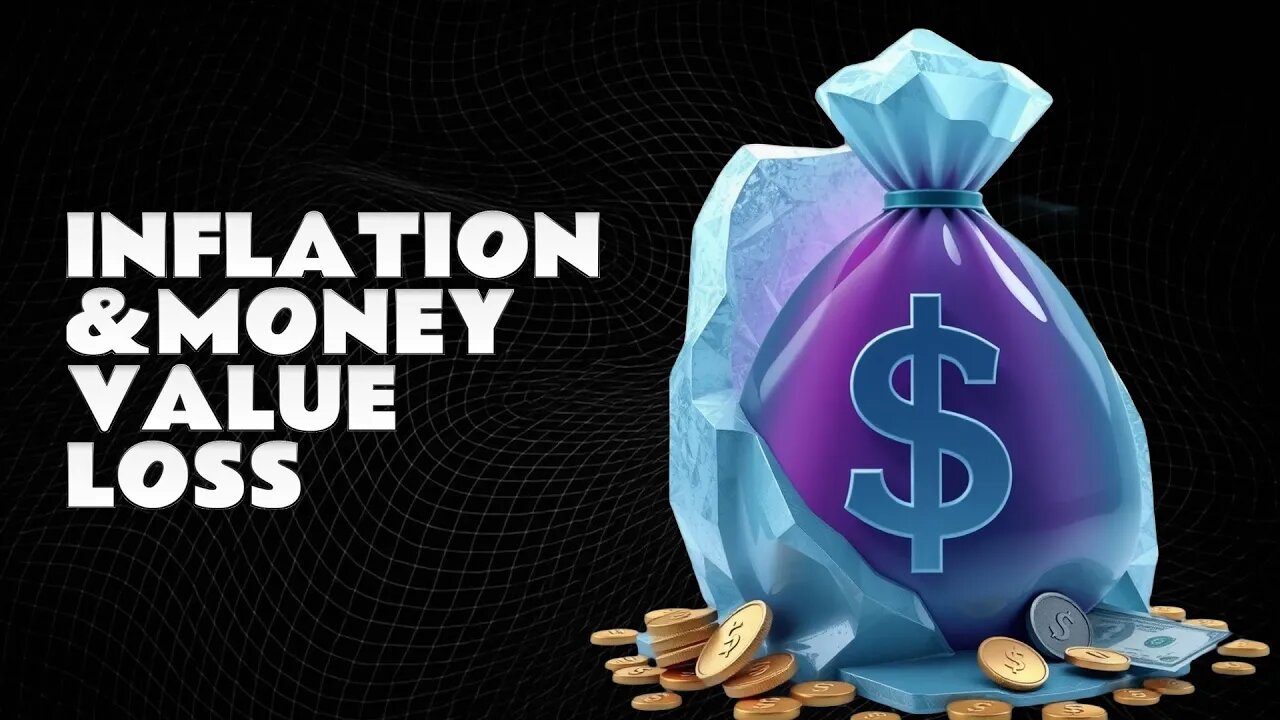Premium Only Content

Inflation Explained Simply: Why Your Money Loses Value
Inflation is a term often heard in economic discussions, but what does it really mean and why does it affect the value of your money? Simply put, inflation is the general increase in prices and fall in the purchasing value of money. When the cost of goods and services rises, each unit of currency (like a dollar) buys less than it did before. Understanding inflation is crucial for managing personal finances and comprehending broader economic trends.
At its core, inflation occurs when the demand for goods and services exceeds the supply. This can happen for various reasons, such as increased consumer spending, government deficits, or a rise in production costs. When there is more money chasing the same amount of goods, prices tend to rise. For example, if the money supply increases due to government stimulus packages or low-interest rates, more money is circulating, leading to higher prices.
There are different types of inflation, each impacting the economy differently. Moderate inflation, typically around 2-3% annually, is considered healthy as it encourages spending and investment. However, high inflation, often referred to as hyperinflation, can be detrimental, leading to economic instability and a significant decline in the value of money. Conversely, deflation, where prices decrease, can also be problematic as it discourages spending and investment.
Inflation affects individuals in several ways. For consumers, it means higher prices for everyday goods, reducing their purchasing power. For savers, it erodes the value of their savings over time. For example, if inflation is 3% annually, $100 saved today will only be worth about $97 in a year. For investors, inflation can impact returns on investments, making it essential to consider inflation-adjusted returns.
Governments and central banks use various tools to manage inflation. Monetary policy, which involves adjusting interest rates and controlling the money supply, is a primary method. When inflation is high, central banks may raise interest rates to reduce borrowing and spending, thereby cooling the economy. Conversely, during deflationary periods, they may lower interest rates to encourage spending and investment.
Understanding inflation helps in making informed financial decisions. By being aware of how inflation affects savings, investments, and everyday expenses, individuals can better plan for the future. For instance, investing in assets that tend to keep pace with inflation, such as real estate or inflation-protected bonds, can help preserve wealth.
In conclusion, inflation is a fundamental economic concept that impacts everyone. By grasping its causes and effects, individuals can navigate their financial decisions more effectively, ensuring their money retains its value over time.
-
 LIVE
LIVE
LFA TV
16 hours agoBREAKING NEWS ALL DAY! | FRIDAY 9/26/25
4,030 watching -
 LIVE
LIVE
Chicks On The Right
3 hours agoComey's FAFO moment, Dallas sniper details, DFWYF, and who to trust in media.
2,033 watching -
 LIVE
LIVE
Welcome to the Rebellion Podcast
17 hours agoYou Made it to FriJay - WTTR Podcast Live 9/26
316 watching -
 1:29:14
1:29:14
Game On!
17 hours ago $1.34 earnedNFL Week 4 Betting Report Preview!
10.4K2 -
 21:05
21:05
Adam Does Movies
22 hours ago $1.22 earnedAlien: Earth Episode 8 - Recap
9.88K3 -
 18:49
18:49
World2Briggs
19 hours ago $1.57 earnedTop 10 States To retire in 2026 According to Experts
12.5K4 -
 19:03
19:03
Blackstone Griddles
14 hours agoParmesan Ranch Chicken Sandwich oxn the Blackstone Griddle
11.9K3 -
 2:00:29
2:00:29
BEK TV
1 day agoTrent Loos in the Morning - 9/26/2025
13.1K -
 LIVE
LIVE
The Bubba Army
23 hours agoJimmy Kimmel's Audience Plummets by 20 MILLION! - Bubba the Love Sponge® Show | 9/26/25
1,081 watching -
 17:24
17:24
Sponsored By Jesus Podcast
22 hours agoLoving Our ENEMIES & Praying for Those Who Hurt Us
13.7K5